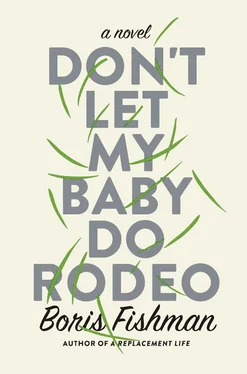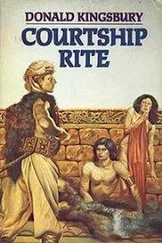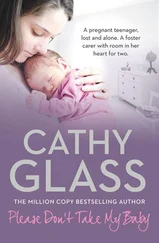“You don’t smoke,” Alex reminded her.
“I can stand with our guest,” she said.
Outside, a cobalt darkness had got hold of the evening. Maya loved this hour. The last light had crept out of the sky, but the full blackness had yet to take over.
“If you move around the corner with me,” Maya said to Laurel, “I’ll have one with you.”
They smoked in silence. Laurel folded one arm under the other.
“I’m sorry we did this,” Laurel said at last. “I want you to know I am.”
Maya looked at her with surprise. She had been thinking of herself as the one in error, and only now wondered why. “I’m glad you’re here,” she said. “My husband and I don’t have the same views.”
“Why his way, then?”
“His need is greater,” Maya said.
“I needed to see it for myself,” Laurel said. “You can understand that, can’t you?”
Maya nodded eagerly. “Of course I can.” She pulled on her cigarette without desire. “Are you married?” she said. “The forms didn’t say.” She added hastily: “It doesn’t matter to me.”
“We fight like married people, don’t we?” Laurel said. She seemed to enjoy the thought.
Maya watched Laurel out of the side of her eyes. This little body had brought forth a child. From where? It must have retracted immediately to its original shape: that was the meaning of youth. Maya surveyed with jealousy the pears of Laurel’s breasts, the slight knob of the nose. This body had brought forth a child. As hers never would.
Laurel was going to chuck the butt into the grass, then remembered where she was and crushed it against the heel of her boot. She dropped it into a pocket of her dress. It had many pockets.
“It’ll smell,” Maya said, watching Laurel light another. “Here, we’ll put it in the garbage. Oh, I must be so irritating, talking like your mother. You are half my age, but already a mother yourself.”
“Just because we’re here,” Laurel said, “you don’t have to worry about us trying to interfere with you. I just needed to see it.” Youthfully, she added: “I promise you.”
Maya felt relief — on Alex’s behalf. She thought that if ever she had been unfaithful to Alex, he would have wanted her to keep it a secret. And she would not have been able to.
“Some things you should know,” Laurel said. “I haven’t been breast-feeding him even though this milk wants to come out of me like the Yellowstone. And we haven’t named him even though a nameless baby is a pretty Friday-the-thirteenth kind of thing.” She dragged on her cigarette hungrily, then looked around her. “I’m just going to sit down in the grass here for one minute.”
Before Maya could object or offer a blanket, Laurel was sitting on the grass, her boots one under the other and the pleated sundress flared over her thighs. Maya had an impolite desire to touch her skin. Even in the near-bituminous darkness, she saw it was thick like rubber, just manufactured. Maya was hardly an old maid herself, thirty-four, in America that was just starting out, but Laurel was like a former version of herself come to shame her for waiting so long. Most girls in Kiev were mothers by twenty-one. Instead of a child, Maya had given birth to a new life in America. It was twelve years old now, and she was ready for another. She wanted for it a sibling.
“This grass is soft like hand cream,” Laurel said. “It’s luscious.”
“My husband. .” Maya started, and trailed off. She found herself without the energy to remark on the lawn now. It was a special concern of Alex’s. He worried over it to the point of detriment. She had read that fallen leaves ought to remain — their decomposition fed the soil. But those leaves were in Home Depot bags before they hit the ground. For this, Alex had massive energy. Once, he had hauled himself out of bed with a fever because the leaves were choking his grass and had to get cleared. He was contemplating cutting down the large oak that was responsible until Maya reminded him it would probably lower the home’s resale value.
Forgetting her earlier mindfulness, Laurel stubbed her cigarette into the grass. Then she lay down. Maya looked worriedly toward the house and the yellow light falling from the kitchen, which turned a small square of space outside the sliding doors indigo. What were those three discussing? She needed to get back inside.
“Come down here, won’t you?” Laurel said.
Maya looked down, flummoxed.
“Just get down here next to me,” Laurel said.
Maya’s jeans were dark — the grass stain would not show. “Where should I—” she started, and then just came down. The grass was cool under her hair.
“You’re shit for stars,” Laurel said, looking up.
“There’s more where you are?” Maya said.
“It’s way open,” Laurel said. “You have to drive a couple of miles to see as many homes as I can see from right here. It’s like a giant board. And if you do anything too sudden-like, you’ll fall off. Here, hold my hand so we don’t fall off the board.” Nervously, Maya allowed her hand to be fished for in the dark. If Alex saw her now. Laurel had work hands. Was she lying about the Ramada to seem more respectable? They lay listening to cicadas.
“I don’t like to fly, either,” Maya said, trying to ingratiate herself. “Actually, I can’t. It sends me into convulsions. I came to America on a boat, like they did a hundred years ago.”
“Oh, I’d like to try flying,” Laurel said.
Maya’s cheeks colored. She was grateful for the darkness. Laurel and Tim drove not because Laurel couldn’t fly — they didn’t have the money for it.
Maya lifted herself partway and looked over at Laurel. “I’m sorry for asking this,” she said. “Please.” No response came from Laurel, but also no objection. “Please tell me he’s healthy.”
Laurel looked over at Maya. “You’ve seen the medical history.”
“Please.”
“He’s the healthiest boy you’ll ever lay eyes on.”
Maya wanted to embrace Laurel down there on grass — then reproached herself; she was always too ready to believe. But then she darkened and said: “Why us, Laurel?”
Laurel stared back up at the sky. “I don’t have to tell you he’s an accident baby. Tim’s eighteen years old, and he makes six thousand dollars a year riding bulls. And you saw the way that he walks. So I don’t know if I’ll have a husband in a wheelchair in five years. Like half of them end up in wheelchairs, making the best of it. Making the best of it — I hate those words. Being heroes about ending up in a wheelchair. Why can’t he make the best of what he’s got now — instead of waiting to make the best when he’s got so much less? But he wants less, so I gave him less. I ain’t letting him raise a child this way. Not with me, if that’s what he does with his life. My own fault for getting my days wrong. But Tim and I, we have to be together. Him I can’t let go of. Him”—she nodded toward the house, meaning the baby—“I can.”
“But how?” Maya said, Laurel’s words so unbelievable that she smiled in astonishment.
“I’m going to find out. He’ll be with good people. You’re good people, I can see it. Earn real money. And don’t ride bulls for a living.”
Maya wanted to tell Laurel that she was making a mistake. But if she happened to persuade her? She said with incredulity: “He won’t quit? He’d rather give up the baby?”
“It’s complicated,” Laurel said. “In the meantime, decisions need to get made. I made it.” She laughed coarsely. “My need was greater.”
“But if that’s all it is — if it’s just his rodeo—” Maya sputtered out.
“Make him stop? Why don’t you persuade your husband to change the adoption to open?”
Читать дальше












